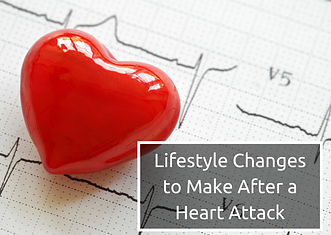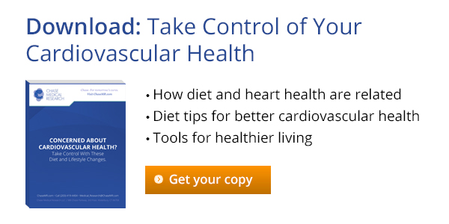Having a heart attack is one of the most frightening experiences that a person can go through. If you have had a recent heart attack and want to make sure that you are minimizing your risk for another, there are some important lifestyle changes that you must be mindful of in order to keep yourself as healthy as possible.
Understanding Your Symptoms
The first thing that you should be aware of after you have a heart attack is which symptoms in particular you experienced during the event. Although there are common symptoms such as chest pain and shortness of breath, everyone experiences slightly different symptoms during a heart attack. You should keep your specific experience in mind so you can quickly evaluate your symptoms if they ever occur again.
Keep in mind, however, that just because you are experiencing one of the same symptoms again does not mean that you are having another heart attack. For example, if you felt symptoms similar to indigestion just before your heart attack, you should not think that every incident of indigestion means that you are having another heart attack.
Heart Attack Risk Factors
A critical element of protecting yourself from another heart attack is understanding the most common risk factors. These include:
- High blood pressure
- High cholesterol
- A family history of heart attacks
- Diabetes
- Stress
Once you know which of these factors apply to you, the next step is to work with your healthcare providers to come up with a plan to help treat these conditions.
Treating Heart Attack Risk Factors
Most people who have suffered from a heart attack will be given medication by their doctors. Remember to always take your medication exactly as prescribed.
Some heart attack victims make the mistake of believing that they do not need the medication anymore once they start to feel better. If you find yourself in this situation, it is okay to ask your doctor about it, but do not stop taking the medication without first getting their input.
One of the most common treatments on the road to recovery after a heart attack is to begin a program known as cardiac rehab. With this program, you will go to a hospital or other type of healthcare facility and start an aerobic exercise program to regain your strength and improve the function of your heart. The goal of cardiac rehab programs is to get the rest of your heart muscles to compensate for muscles that were damaged by your heart attack and aren’t functioning the way they should be.
Cardiac rehab also provides you with the benefit of endorphins, a type of brain chemical that makes you feel better mentally and helps you reduce your blood pressure, cholesterol, and blood sugar. Exercise is extremely important for those who have had a heart attack, especially when you consider that heart attack victims have the highest risk of suffering from another heart attack in the six month period after their first one.
Lifestyle Changes
Altering your lifestyle is very important after a heart attack. Work-related stress is a major contributing factor to heart attacks. The pressure to work the same way as before a heart attack can be a serious contributing factor to another heart attack. Because of this, it is important to be open to changing work habits: stop spending so many overtime hours at the office, switch to a less stressful role, or try to find a new job that places less stress on you for a similar level of compensation.
Of course, these lifestyle changes aren’t always possible to make. If you have little control over your work situation, then try to improve the parts of your lifestyle that you can control. Spend more time doing hobbies or other things that you love, and increase contact with friends or family members.
No matter how old you are or what your life situation is, a heart attack is an extremely dangerous occurrence. You must do everything that you can to prevent yourself from having another heart attack. You want to continue to live a healthy and normal life as long as possible.
Learn More
If you're interested in learning more about your cardiovascular health, download our free white paper. Our white paper covers many cardiovascular risks and steps you can take to prevent them. To download, click the button below.
Don't hesitate to contact us with any questions you may have!
Share This Post
Recent Posts
- Obesity and Cardiovascular Disease: Is There a Link? December 3 2014
- Lp (a), A New Lab Test for Cardiovascular Risk December 3 2014
- Mediterranean Diet and Lifestyle Choices for Improved Health December 3 2014
- Understanding the Relationship Between Obesity & High Blood Pressure December 3 2014
- Cardiovascular Diseases Explained December 3 2014
Categories
- Clinical Trials
- Cardiovascular Disease
- Diabetes
- Obesity
- Kidney Disease
- Pain Management
- Female Sexual Dysfunction
- Hypertension
- Migraine
- Vaccine
- Chronic Obstructive Pulmonary Disease
- Osteoarthritis
- Biologics
- COVID-19
- Cholesterol
- Diabetic Peripheral Neuropathy
- Gastroesophageal Reflux Disease
- Irritable Bowel Syndrome with Constipation
- Lyme Disease
- Nonalcoholic Steatohepatitis
- Respiratory Syncytial Virus




